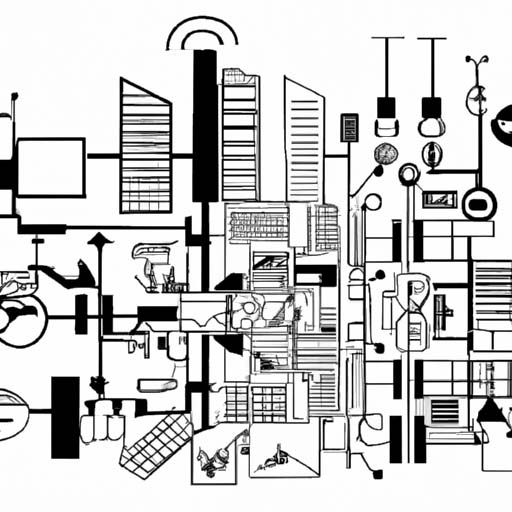Are you curious about the future of education? Do you wonder how technology will transform the way we learn? In today’s digital era, classrooms are no longer confined to physical walls. With the advent of automated learning tools, students can now access education from anywhere, at any time.
In this article, we will dive deep into the world of digital classrooms and explore the innovative learning platforms and tools powered by automation. Get ready to be amazed by the possibilities!
The Rise of Digital Classrooms
Traditional classrooms have always been limited by factors such as time and location. Students were required to attend classes at specific times and in specific places. However, digital classrooms have revolutionized the learning experience by breaking these barriers.
Automated learning tools enable students to access educational content and interact with instructors online. With just a few clicks, learners can enroll in courses, download study materials, and even participate in live virtual classes. The flexibility offered by digital classrooms allows individuals to learn at their own pace, making education more accessible and convenient.
Moreover, digital classrooms provide opportunities for global collaboration. Students from different parts of the world can connect and work on shared projects, bringing diverse perspectives into the learning process. This fosters a sense of community and opens doors to cross-cultural understanding and knowledge exchange.
The Power of Automation
Automation is at the core of the future of digital classrooms. It empowers educators and learners alike by automating repetitive tasks, enabling personalized learning experiences, and enhancing overall efficiency.
One of the key benefits of automation in digital classrooms is the ability to analyze large amounts of data. Automated tools can collect and process data on students’ performance, progress, and engagement. This data-driven approach allows educators to identify areas where students might be struggling and provide targeted interventions. By receiving personalized feedback and guidance, students can maximize their learning potential and overcome challenges more effectively.
Additionally, automation can streamline administrative tasks, saving time for both teachers and students. Grading assignments, managing schedules, and organizing resources can all be automated, freeing up valuable time that can be devoted to more meaningful interactions and deeper learning experiences.
Innovative Learning Platforms
Now, let’s take a closer look at some of the innovative learning platforms and tools transforming the future of education:
1. Learning Management Systems (LMS)
LMS platforms provide a centralized hub for managing course materials, conducting assessments, and facilitating communication between instructors and students. Features such as discussion forums, assignment submission, and content sharing make LMS platforms essential components of digital classrooms.
2. Intelligent Tutoring Systems (ITS)
ITS leverage artificial intelligence and machine learning algorithms to deliver personalized instruction and assistance to students. These systems adapt to individual learning styles, provide real-time feedback, and offer additional resources based on each student’s needs.
3. Virtual Reality (VR) and Augmented Reality (AR)
Virtual and augmented reality technologies have the potential to revolutionize the way we learn. Immersive experiences can transport students to different environments, allowing them to explore historical landmarks or perform scientific experiments in a virtual lab. These technologies make learning more engaging, interactive, and memorable.
The Future of Education
As we navigate the ever-evolving landscape of education, digital classrooms and automated learning tools will continue to play a significant role. The future holds exciting possibilities for customized education, personalized learning pathways, and global collaboration.
However, it’s important to remember that technology should not replace teachers but rather empower them. The human touch, guidance, and expertise of educators are irreplaceable in cultivating critical thinking, creativity, and problem-solving skills.
So, embrace the digital revolution, explore the vast opportunities offered by automated learning tools, and unlock your full educational potential. The future of education is here, and it’s waiting for you to dive in!
